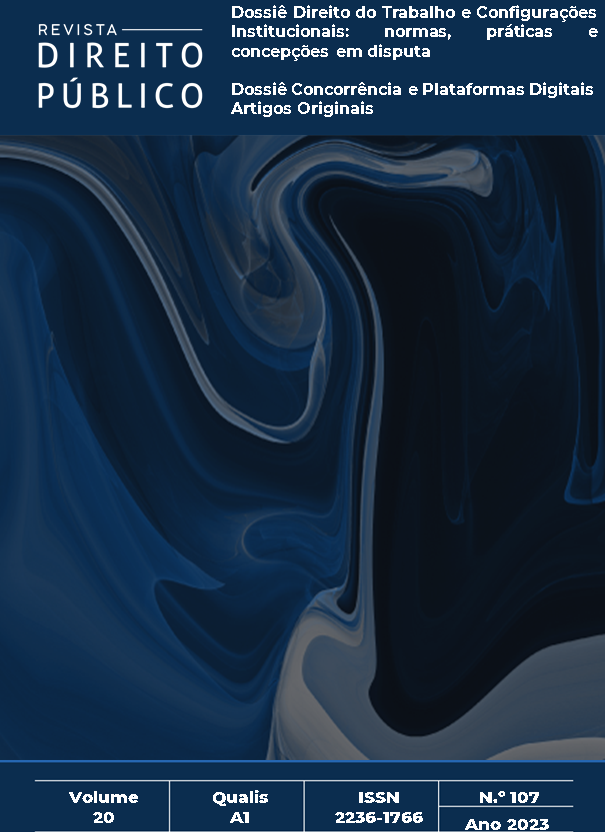Self-Preferencing
DOI:
https://doi.org/10.11117/rdp.v20i107.7503Resumo
When markets at successive or complementary stages are imperfectly competitive, firms that operate at multiple stages typically have a strong incentive to purchase from, sell to, or otherwise coordinate with its own operations at adjacent stations compared with those of individual firms. But, to the extent that such self-preferencing eliminates double marginalization that would occur under vertical separation or otherwise facilitates coordination that is difficult to accomplish between firms, competition rules that discourage self-preferencing, such as restrictions on vertical mergers or integration, can harm consumers. In 2020, the United States Department of Justice and Federal Trade Commission issue revised vertical merger guidelines that promised enforcement that more nearly resembles how they review horizontal mergers – that is, by predicting effects on static pricing incentives. But the economics of how vertical mergers on pricing incentives is more complicated than the economics of how horizontal mergers affect pricing incentives. If U.S. enforcement is based on a consumer welfare standard, the U.S. agencies will struggle to find a robust methodology for distinguishing anticompetitive from procompetitive vertical mergers. Self-preferencing has also played a key role in allegations of anticompetitive behavior in technologically advancing industries. A review of past allegations of anticompetitive product innovation against IBM, Microsoft, and Google reveals the challenges in designing rules that limit self-preferencing without acting as a drag on innovation.
Downloads
Publicado
Como Citar
Edição
Seção
Licença
Copyright (c) 2023 Direito Público

Este trabalho está licenciado sob uma licença Creative Commons Attribution-NonCommercial 4.0 International License.
O(s)/A(s) autores(as) dos manuscritos submetidos concorda(m) com as regras a seguir:
1) Todos os autores e autoras participaram do trabalho, são responsáveis pelas ideias e conceitos nele emitidos e atestam sua conformidade com os princípios éticos exigidos.
2) Todos os autores e autoras concordam com a forma final do trabalho e em ceder os direitos para publicação nos canais de publicação da Escola de Direito do IDP.
3) Todos os autores e autoras informam que o manuscrito é de sua autoria e assumem a responsabilidade pelo trabalho, declarando que a obra a ser publicada não infringe quaisquer direitos de propriedade intelectual de terceiros.
3.1) Em caso de submissão simultânea, além da reprovação imediata do artigo e comunicação ao(s) respectivo(s) periódico(s), a Revista Direito Público se reserva o direito de não receber novas submissões de todos os autores implicados pelo prazo de 2 (dois) anos, contado a partir da data de ciência do fato.
4) Todos os autores e autoras autoriza(m) a edição de seu trabalho e cede(m) à Escola de Direito do IDP os direitos de autor para reproduzir, editar e publicar ou veicular o citado trabalho em qualquer forma midiática, resguardada a autoria, em particular sob forma digital, em arquivo eletrônico online na Internet, bem como armazená-los em seu repositório de acordo com o desenvolvimento do processo editorial. Esta concessão não terá caráter oneroso para a Escola de Direito do IDP, não havendo remuneração sob qualquer modalidade pela utilização do referido material, tendo este o caráter de colaboração científica.












